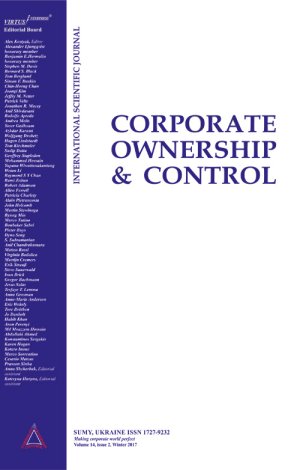
-
 Journal menu
Journal menu

- General information
- Editorial Board and External Reviewers
- Journal Policies
- Publication Ethics and Malpractice Statement
- Instructions for authors
- Paper reviewing
- Article processing charge
- Feedback from stakeholders
- Journal’s Open Access statement
- Order hard copies of the journal
- 50 most cited papers in the journal
FAIR VALUE ACCOUNTING VERSUS HISTORICAL COST ACCOUNTING: A THEORETICAL FRAMEWORK FOR JUDGMENT IN FINANCIAL CRISIS
Download This ArticleAbstract
Since the 2008 global economical and financial crisis, the fair value measurement has acquired a controversial position both within the accounting regulatory committees and the accounting theory. The literature generally examines two opposite central paradigms of evaluation, namely the Fair Value Accounting (FVA) and the Historical Cost Accounting (HCA). The paper, after a literature review through both these opposite sides, suggests a theoretical framework, using the basic concept of “accounting system”, for the choice between the opposite paradigms, considered noteworthy in times of crisis as it should allow to conceptualize a ‘mixed system’, combining FVA and HCA in different ways according to the different contexts and entities reported by the financial statements.
Keywords: Accounting, Financial Crisis, Historical Cost, Fair Value Accounting
How to cite this paper: Costa, M., & Guzzo, G. (2013). Fair value accounting versus historical cost accounting: a theoretical framework for judgment in financial crisis. [Conference issue]. Corporate Ownership & Control, 11(1-2), 147-153. https://doi.org/10.22495/cocv11i1conf2p6

















